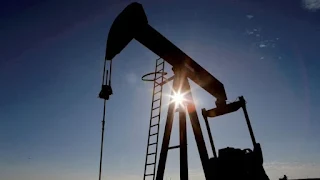The recent announcement of $35 billion investment by the United Arab Emirates (UAE) in Egypt promises a gleaming new city on the Mediterranean coast, but the true significance of this deal lies deeper, driven by a complex web of strategic considerations for both nations.
On the surface, the investment appears purely economic. The UAE, flush with petrodollars, seeks to diversify its holdings and establish a foothold in Egypt's burgeoning tourism sector. The planned city of Ras El- Hekma, envisioned as a luxury destination, aligns perfectly with the UAE's expertise in developing high-end resorts and infrastructure.
Egypt, meanwhile, desperately needs foreign currency inflows to bolster its struggling economy and stabilize its currency. The deal offers a much-needed lifeline, easing pressure on the Egyptian pound and potentially paving the way for a larger bailout from the International Monetary Fund.
However, beneath the veneer of economic benefit lies a potent mix of geopolitical calculations. The UAE has long viewed itself as a regional leader, and this investment serves as a powerful assertion of its influence. By throwing its financial weight behind Egypt, the UAE strengthens a key ally in the fight against political Islam, a shared concern for both countries. Egypt's President Abdel Fattah el-Sisi has been a staunch opponent of Islamist groups like the Muslim Brotherhood, aligning with the UAE's vision for a stable and secular Middle East.
Furthermore, the deal strengthens the UAE's position in the competition for regional dominance. Saudi Arabia, the UAE's traditional rival, has also been ramping up its investments in Egypt. The UAE's $35 billion commitment sends a clear message: it intends to remain a major player in shaping the region's future.
The strategic significance extends beyond the immediate neighborhood. Egypt's location at the crossroads of Africa and the Middle East makes it a vital player in regional security. The UAE's investment can be seen as an attempt to cultivate a strong and stable Egypt, capable of acting as a bulwark against potential threats emanating from the volatile Horn of Africa or the Sahel region.
The investment also carries implications for the global energy market. Both the UAE and Egypt are major oil producers, and their cooperation can potentially influence global energy prices and supply chains. A more economically prosperous Egypt, backed by the UAE's financial muscle, could become a more significant player in the global energy landscape.
However, the deal is not without its risks. The sheer scale of the investment, representing a significant chunk of the UAE's GDP, raises questions about sustainability. Concerns linger about Egypt's political stability and its ability to deliver on its promises of a business-friendly environment. Additionally, the focus on a luxury development project might not create enough jobs or trickle down to benefit the average Egyptian citizen.

